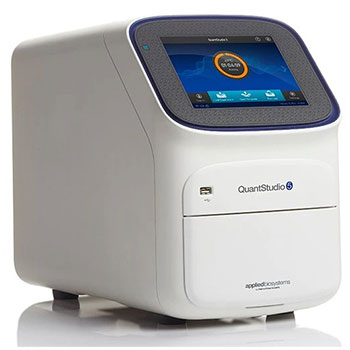Real-time PCR (polymerase chain reaction) offers sensitivity, specificity, and wide dynamic range for detecting target nucleic acids, making it a useful and powerful technology in the field of clinical oncology. In the recent years, the implication of real time PCR in the field of oncology has increased substantially and has become the standard method for disease detection as well as quantification.
Real-time PCR offers detection of minimal residual disease (MRD), single nucleotide polymorphisms (SNPs) and chromosomal translocations.
Applications:
Gene expression analysis
Gene expression is the most common application for real-time PCR due to its efficiency at detecting and quantifying target genes, even at very low expression levels.
Genetic variation analysis
Genetic variation refers to the differences in the DNA sequence encoded within our genomesi.epathological changes underlying disease.
Mutation detection
Thechanges in the DNA sequence called as mutations, they can be very small changes, affecting only a few nucleotides or they can be very large, leading to major changes in the structure of chromosomes.Both small and large mutations can affect the behaviour of cells. Combinations of mutations in important genes can lead to the development of cancer.
Our RT-PCR services overview:
For Myeloproliferative Disorders and Blood cancers:
- BCR-ABL1 Quantification Assay
- BCR-ABL1 Qualitative Assay
- JAK2 (V617F) Mutation Assay
- CALR (Type I & II) Mutation Assay
- MPL (W515L/K/A, S505N) Mutation Assay
For Cervical Cancer:
HPV DNA Assay
(15 high risk types: 16, 18 , 31, 33, 35, 39, 45, 51, 52, 56, 58, 59, 66, 67 & 68)

